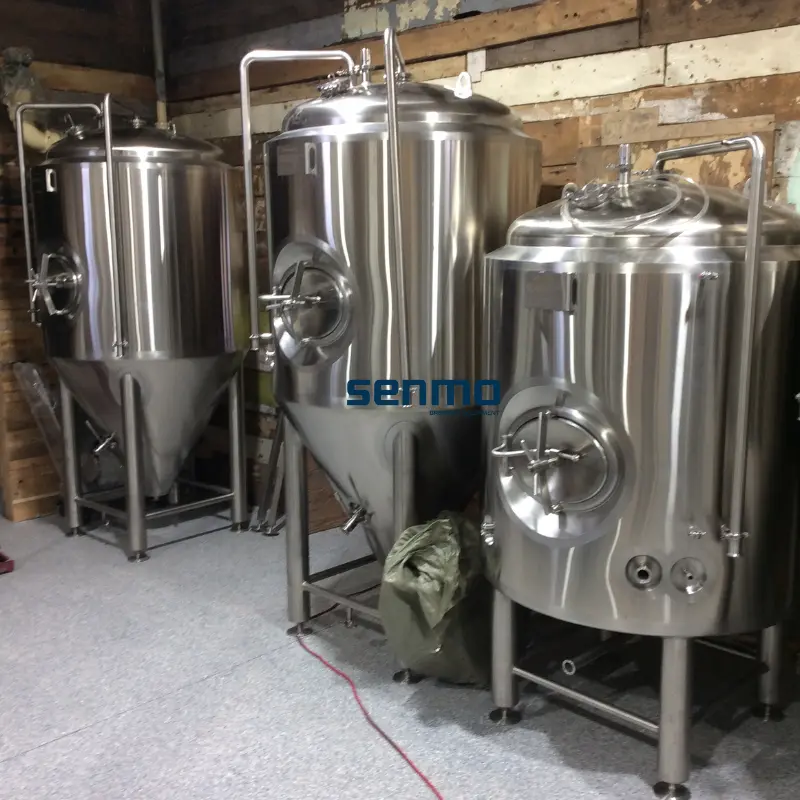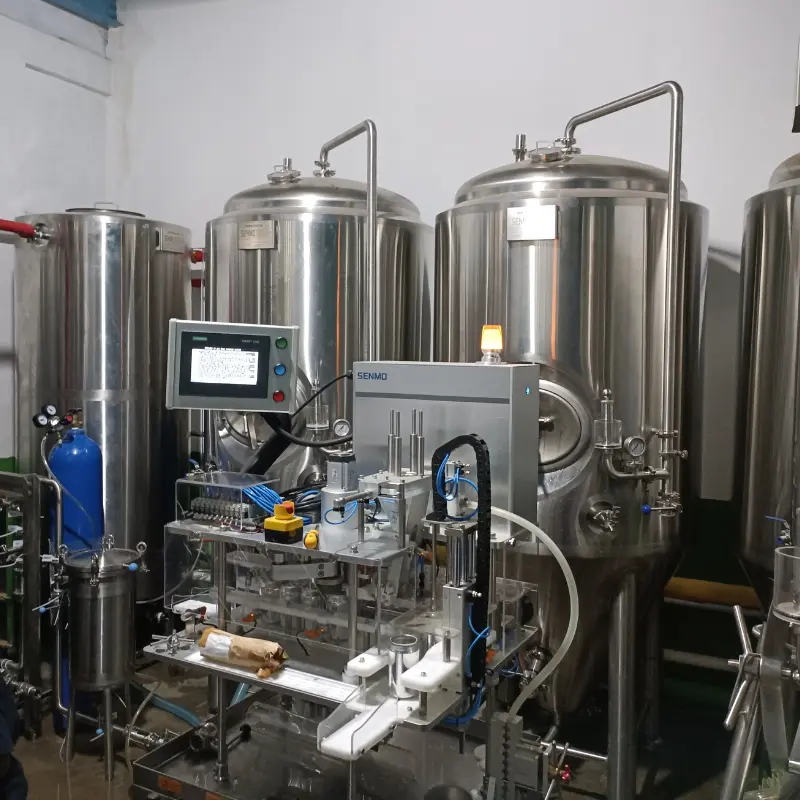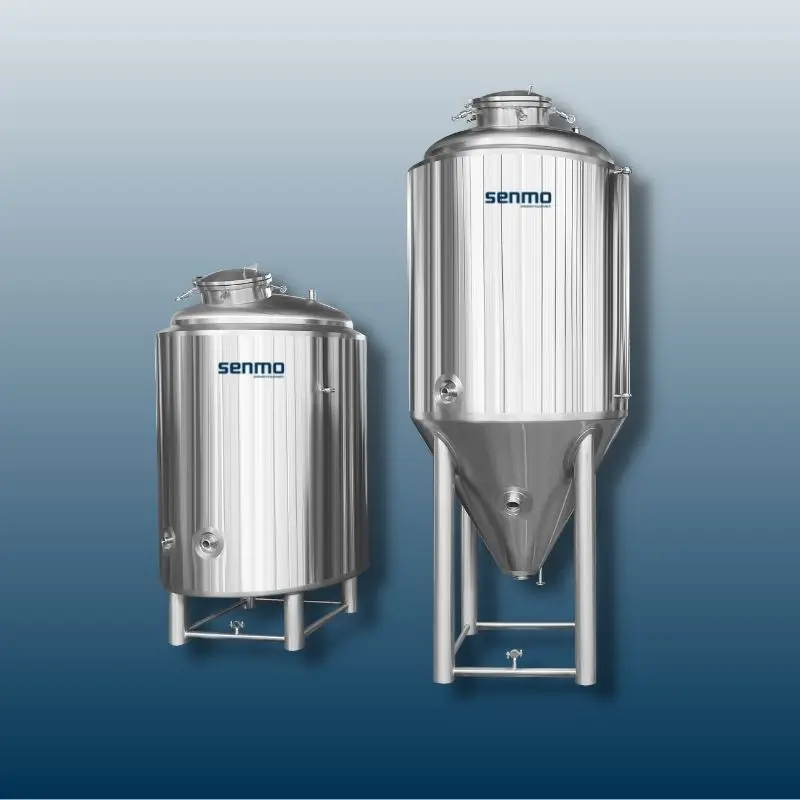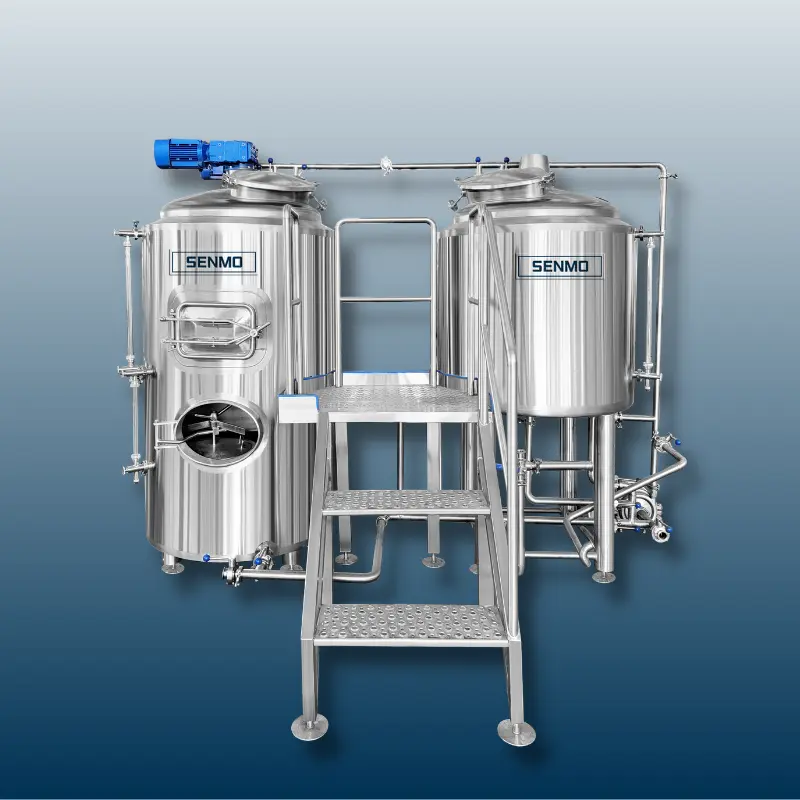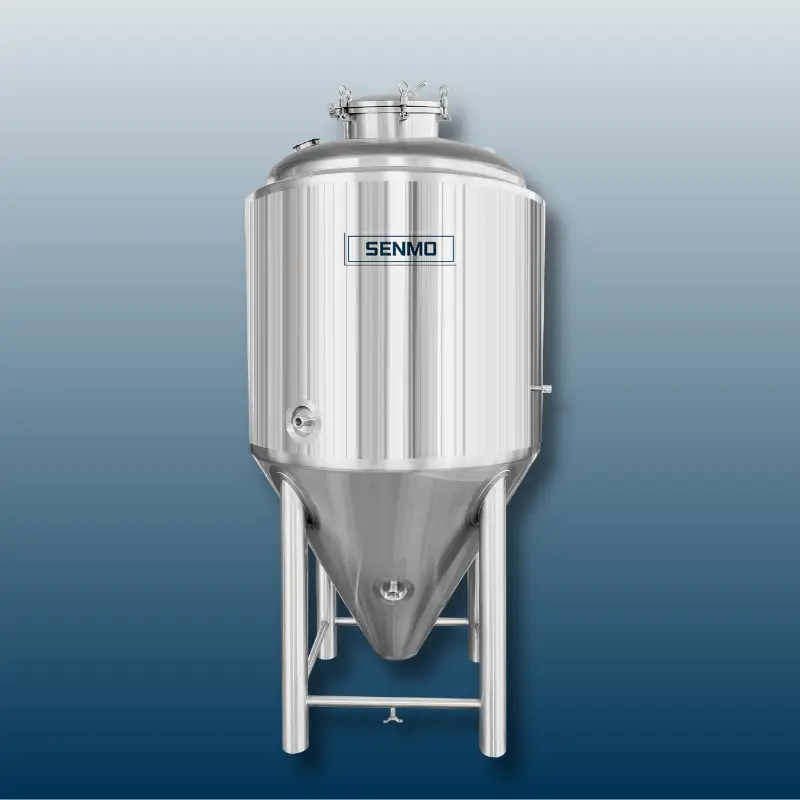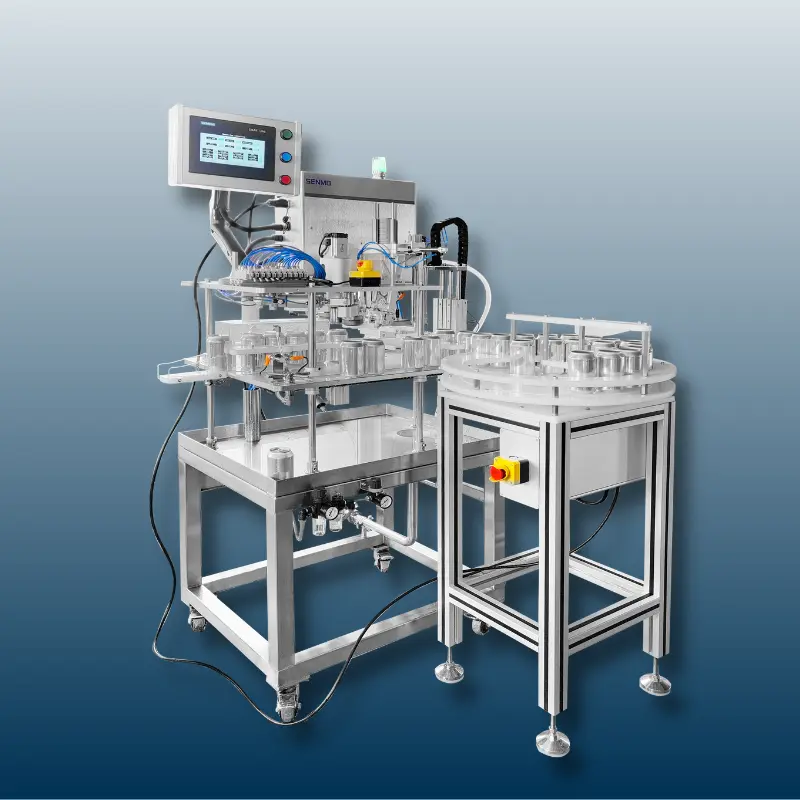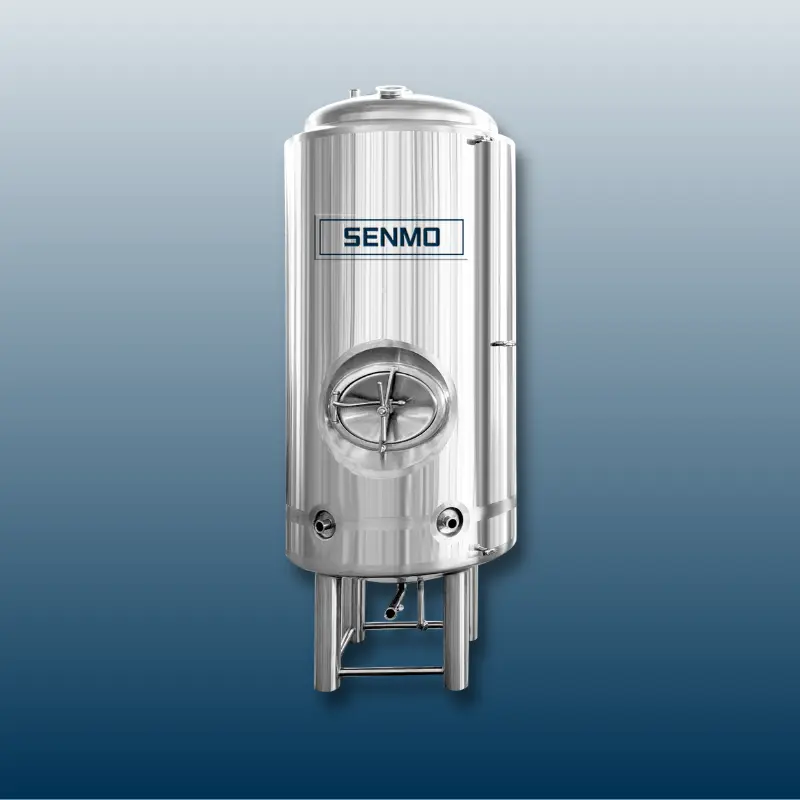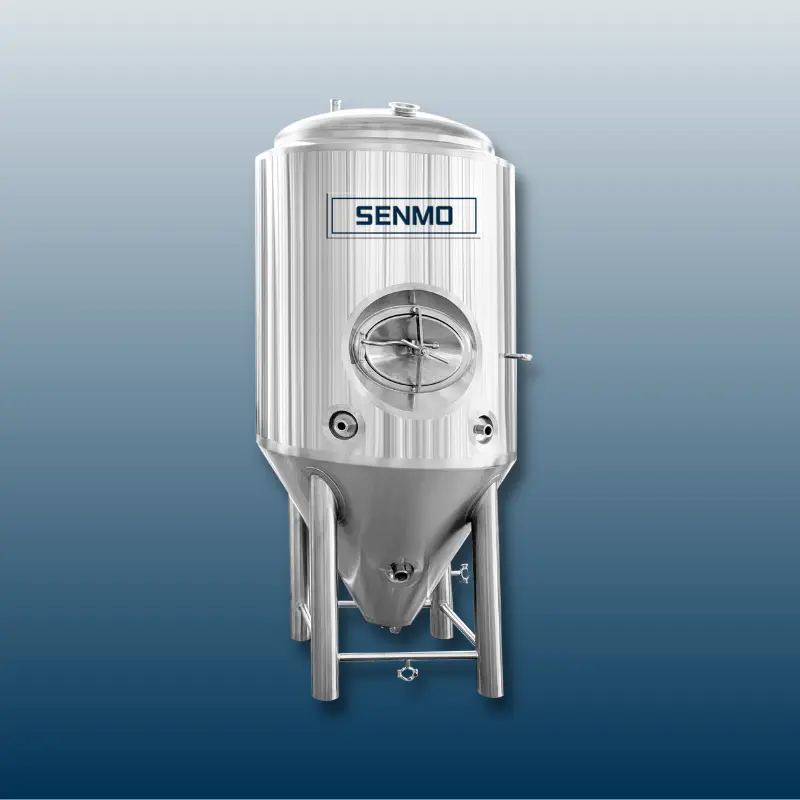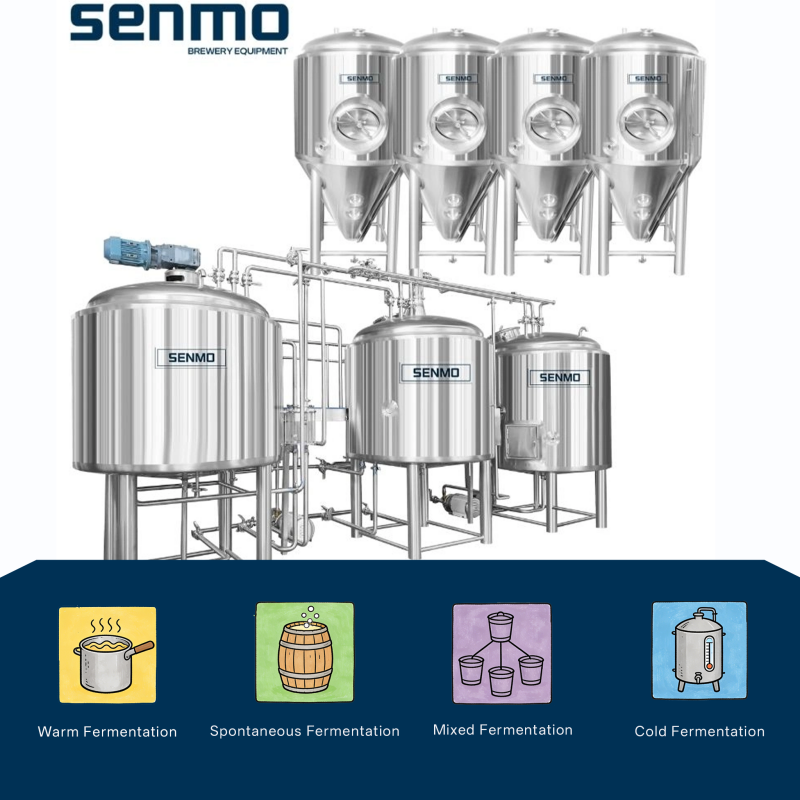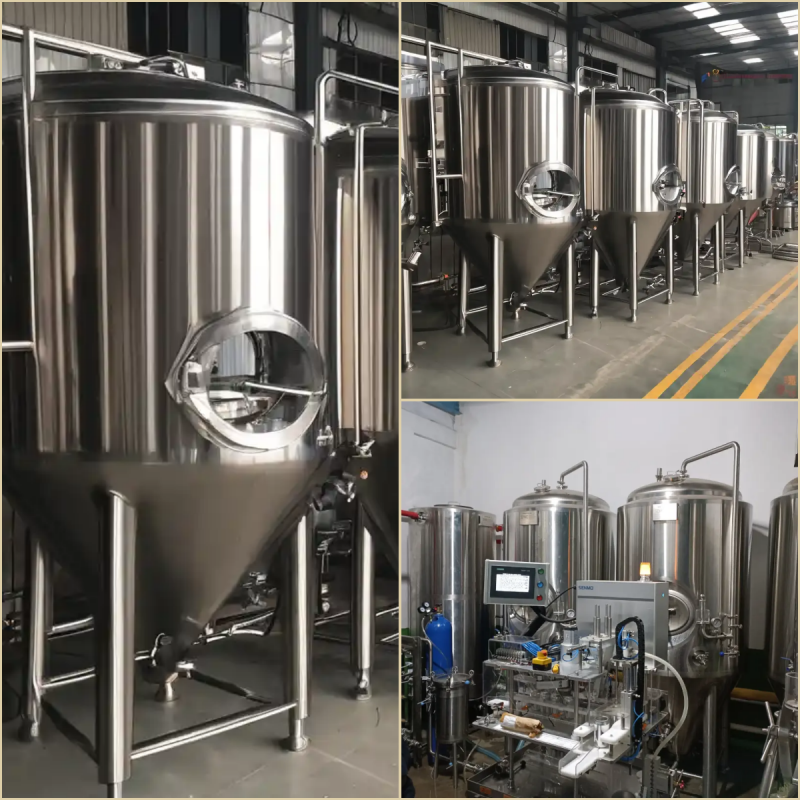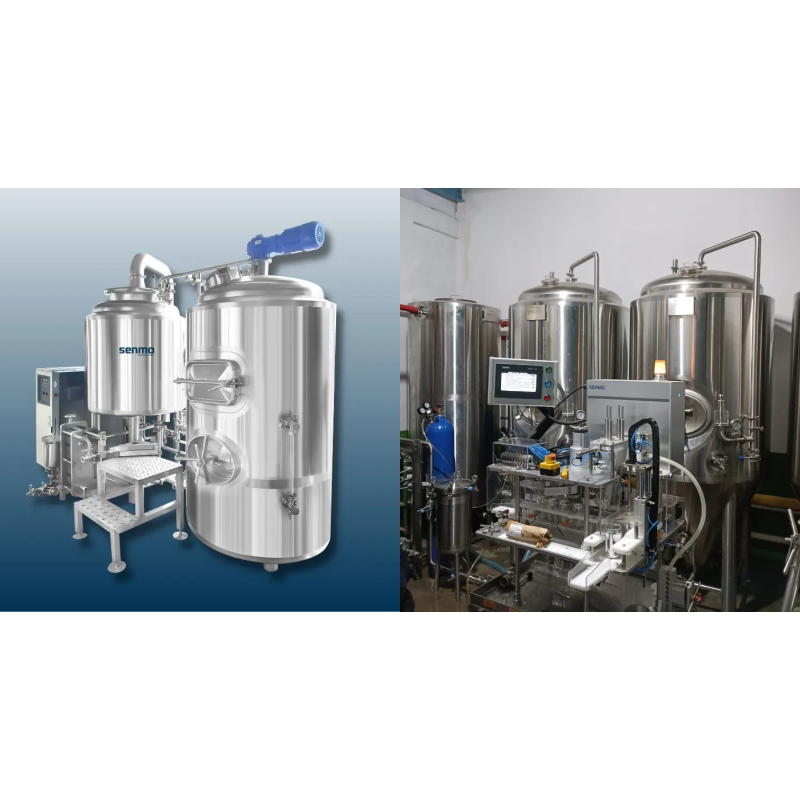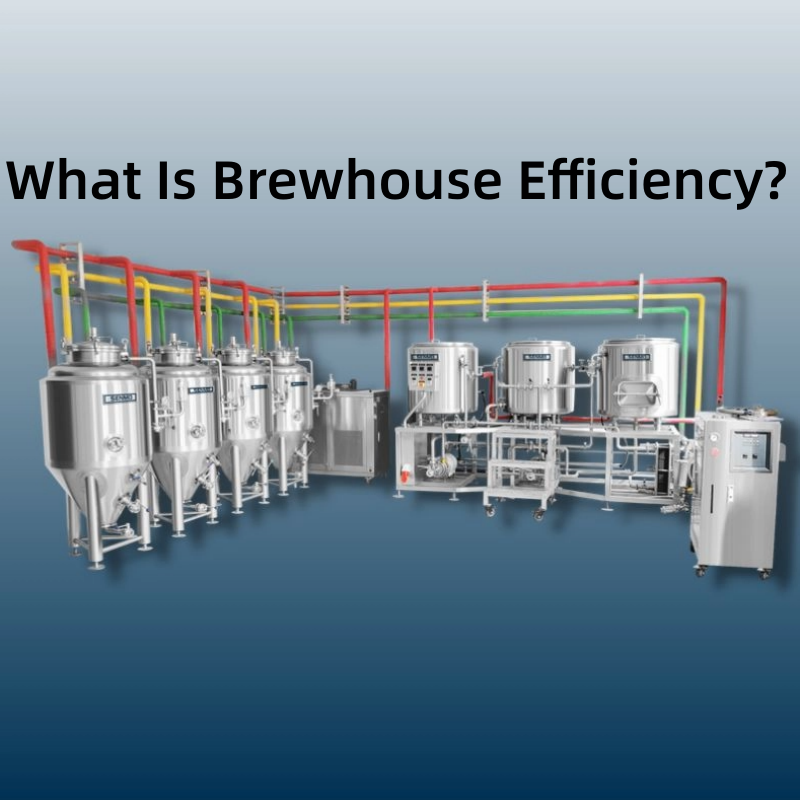When one thinks of a brewery, visions of gleaming stainless steel fermentation tanks and the rich aroma of hops often come to mind. However, behind the scenes, there's another essential player in the brewing process that often goes unnoticed—the hot water tank. In the world of commercial brewing, hot water tanks are the unsung heroes that play a crucial role in achieving consistency and quality in every batch of beer produced.
The Role of Hot Water Tanks in Brewing
Hot water tanks in commercial breweries serve several vital functions that impact the brewing process and the final product:
1. Mashing Process: Hot water tanks supply the necessary hot water for the mashing process. During mashing, crushed grains are mixed with hot water to create a porridge-like mixture. Maintaining precise water temperatures is critical to activate enzymes that convert starches into fermentable sugars.
2. Sparge Water: After mashing, the grain bed needs to be rinsed to extract as many sugars as possible. Hot water tanks provide the sparge water at a controlled temperature, ensuring efficient sugar extraction from the grains.
3. Cleaning and Sanitization: Hot water tanks are also used for cleaning and sanitizing equipment. Proper cleaning is essential to prevent contamination and off-flavors in the beer.
4. Wort Boiling: In some breweries, hot water tanks may supply hot water for the wort boiling process, especially in systems where a separate hot liquor tank is not present.

The commerical brewery hot water tanks made of SUS304 plate,double wall with insulation. For some big hot water tank,it heated by plate heat exchanger,some small tanks can heated by steam coil and electric tubes.

Key Considerations for the Water Tank System
Capacity: The size and capacity of each tank depend on the brewery's production volume and specific needs.
Material: Stainless steel is the preferred material for these tanks due to its durability, corrosion resistance, and ease of cleaning.
Temperature Control: Temperature control and monitoring systems are essential to ensure that hot and cold water are maintained at the correct temperatures.
The water tank system, consisting of brewing water, hot water, cold water, glycol water, and water storage tanks, is the unheralded heartbeat of a commercial brewery. These tanks work in harmony to provide the essential resources for brewing, cleaning, and temperature control. Their meticulous design and precise operation are instrumental in producing consistent, high-quality beer, and they stand as a testament to the dedication of commercial brewers to their craft and the enjoyment of beer enthusiasts worldwide.

Commercial brewery hot water tanks structure
In the world of commercial brewing, a well-designed water tank system is the backbone of consistency, quality, and efficiency. This system typically comprises several key components, each serving a unique role in the brewing process. Let's explore the essential water tanks found in commercial breweries.
1. Brewing Water Tank
Purpose: The brewing water tank is where the initial water for brewing is sourced. It is responsible for providing the base water used in brewing beer.
Quality Control: Water quality is crucial for brewing, and this tank often includes water treatment equipment to ensure that the water is free from contaminants and suitable for brewing.
2. Hot Water Tank
Purpose: The hot water tank is primarily responsible for heating and storing hot water needed during the brewing process.
Functions: It plays a critical role in mashing by supplying the hot water required to mix with crushed grains. It also provides hot water for cleaning and sanitizing equipment.
3. Cold Water Tank
Purpose: The cold water tank stores and supplies cold water as needed in the brewing process.
Applications: Cold water is essential for processes like cooling wort and reducing temperatures during fermentation.
4. Glycol Water Tank
Purpose: The glycol water tank is a crucial component in breweries that use a glycol cooling system for temperature control.
Functions: It circulates chilled glycol solution through the glycol jacket of fermentation tanks and other cooling applications, helping maintain precise fermentation temperatures.
5. Water Storage Tank
Purpose: The water storage tank serves as a reservoir for water supply and distribution throughout the brewery.
Flexibility: It can store treated water for brewing, hot water, or cold water, ensuring a consistent supply for various brewing and facility needs.

Key Features of Commercial Brewery Hot Water Tanks
1. Temperature Control: Precise temperature control is crucial. Hot water tanks are equipped with heating elements and sensors to maintain water at the desired temperature, ensuring consistency in the brewing process.
2. Capacity: The capacity of hot water tanks varies depending on the size of the brewery and production needs. Large breweries may have substantial hot water tanks to meet their high demand.
3. Insulation: Tanks are often well-insulated to minimize heat loss, making them energy-efficient and cost-effective to operate.
4. Material: Stainless steel is the preferred material for hot water tanks due to its durability, corrosion resistance, and ease of cleaning.
5. Safety Features: Hot water tanks are equipped with safety features to prevent overheating and ensure safe operation.
The volume of the storage tanks designed as per the beer brewing system,and the beer production capacity.

FAQ
1. What is the role of a hot water tank in a commercial brewery?
Answer: A hot water tank in a commercial brewery is responsible for heating and storing hot water used in various brewing processes, including mashing, sparging, and equipment cleaning.
2. How does temperature control work in a hot water tank?
Answer: Temperature control in a hot water tank is typically achieved through heating elements and temperature sensors. These components work together to maintain water at the desired temperature, ensuring consistency in the brewing process.
3. What is the capacity range of hot water tanks for commercial breweries?
Answer: The capacity of hot water tanks can vary widely depending on the size and production volume of the brewery. They can range from several hundred liters to several thousand liters in capacity.
4. Can hot water tanks supply water for multiple brewing vessels simultaneously?
Answer: Yes, hot water tanks are often designed to supply hot water to multiple brewing vessels simultaneously, allowing for efficient and parallel brewing processes.
5. Are there safety features in hot water tanks to prevent overheating?
Answer: Yes, hot water tanks are equipped with safety features such as temperature limit controls and pressure relief valves to prevent overheating and ensure safe operation.
6. Can hot water tanks be used for cleaning and sanitizing brewing equipment?
Answer: Yes, hot water from the tank is commonly used for cleaning and sanitizing brewing equipment to ensure that it is free from contaminants and ready for use.
7. How energy-efficient are hot water tanks in commercial breweries?
Answer: Hot water tanks in commercial breweries are designed with energy efficiency in mind. They are often well-insulated to minimize heat loss, making them energy-efficient and cost-effective to operate.
8. What material is typically used for hot water tanks in commercial breweries?
Answer: Stainless steel is the preferred material for hot water tanks in commercial breweries due to its durability, corrosion resistance, and ease of cleaning.
9. Can hot water tanks be customized to fit the specific needs of a brewery?
Answer: Yes, hot water tanks can be customized to match the specific requirements of a brewery, including capacity, temperature control, and integration with other brewing equipment.
10. How often should hot water tanks be maintained in a brewery?
Answer: Regular maintenance is essential for hot water tanks to ensure their longevity and proper operation. Maintenance intervals may vary, but routine checks, cleaning, and inspections are recommended.
11. Are there guidelines for water quality when using hot water tanks in brewing?
Answer: Yes, water quality is critical in brewing, and breweries often implement water treatment systems to ensure that the water supplied by the hot water tank meets the required standards for brewing.
12. Can hot water tanks be integrated into existing brewery setups?
Answer: Yes, hot water tanks can often be integrated into existing brewery setups with proper planning and installation to meet the specific needs of the brewery's processes.







